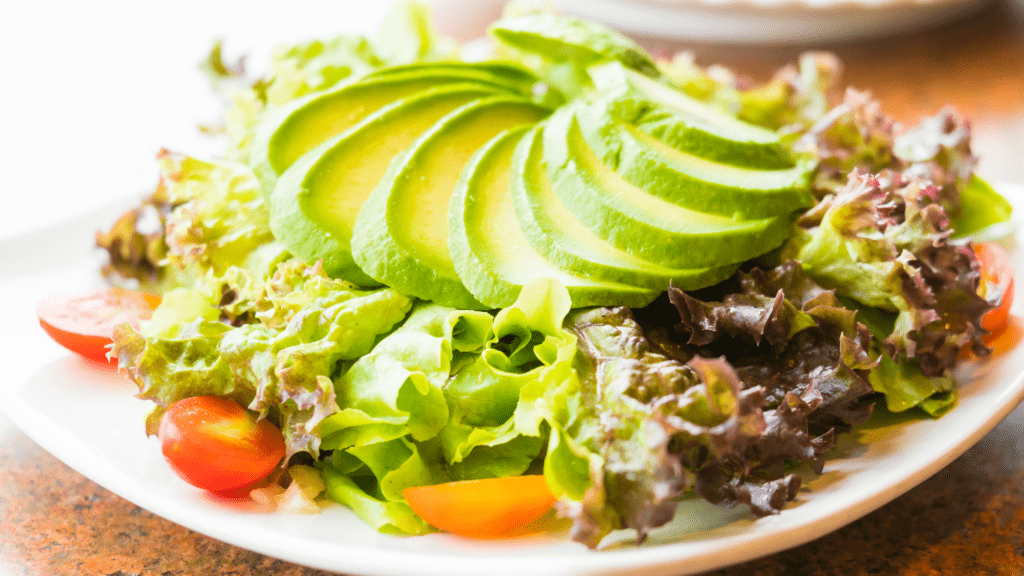Embarking on a plant-based journey can be both exciting and daunting for beginners. As someone who has explored the world of plant-based meal planning, I understand the challenges and rewards that come with this lifestyle shift.
Planning nutritious and delicious plant-based meals doesn’t have to be overwhelming; it can be a creative and fulfilling experience. In this guide, I’ll share valuable insights and practical tips to help beginners navigate the realm of plant-based meal planning with confidence.
From understanding essential nutrients to creating balanced meal plans, I’ll cover everything you need to kickstart your plant-based journey. Whether you’re looking to incorporate more plant-based meals into your diet or fully embrace a vegan lifestyle, this guide will equip you with the knowledge and tools to make informed choices and savor the benefits of plant-based eating.
Benefits of Plant-Based Meal Planning
- Enhanced Nutritional Intake: By focusing on plant-based foods, you’re likely to consume a wider variety of nutrients like vitamins, minerals, and antioxidants essential for overall health.
- Weight Management Support: Plant-based diets are often lower in saturated fats and calories, making them a healthier option for weight management and supporting overall well-being.
- Reduced Risk of Chronic Diseases: Studies suggest that plant-based diets may help lower the risk of chronic conditions such as heart disease, diabetes, and certain types of cancer.
- Environmental Impact: Transitioning to plant-based meal planning can contribute to reducing greenhouse gas emissions and promoting sustainability by decreasing the demand for animal products.
- Ethical Considerations: Choosing plant-based meal options aligns with ethical considerations for animal welfare, making it a compassionate choice for many individuals.
- Budget-Friendly: Plant-based meal planning can also be budget-friendly as staple plant foods like legumes, whole grains, and seasonal vegetables are often more affordable than animal products.
Steps to Start Plant-Based Meal Planning
When starting my plant-based meal planning journey, setting nutritional goals was crucial. I focused on incorporating a variety of plant-based foods to ensure I get all the essential nutrients my body needs to thrive.
Setting Nutritional Goals
I began by identifying my nutritional needs and which plant-based sources could fulfill them. I aimed to include a diverse range of fruits, vegetables, whole grains, legumes, nuts, and seeds in my meals to meet my daily requirements for protein, vitamins, and minerals.
Building a Plant-Based Grocery List
To streamline my plant-based meal planning, I created a comprehensive grocery list that included all the ingredients necessary for balanced and flavorful dishes. I made sure to include staples like quinoa, chickpeas, spinach, and various herbs and spices to add variety and nutrients to my meals.
Plant-Based Meal Prep Tips
When it comes to plant-based meal preparation, staying organized and efficient is key. Here are some practical tips to streamline your cooking and ensure a seamless experience in the kitchen:
- Batch Cooking: One of the most effective strategies for plant-based meal prep is batch cooking. By preparing larger quantities of grains, legumes, and vegetables ahead of time, I can save time during the week and have ingredients ready for quick and nutritious meals.
- Prep Ingredients in Advance: Chopping vegetables, soaking beans, and marinating tofu or tempeh in advance can make meal assembly faster and more convenient. I find that dedicating some time on weekends to prep ingredients sets me up for success throughout the week.
- Invest in Storage Containers: Having a selection of airtight storage containers in various sizes is essential for storing prepped ingredients and meals. I prefer glass containers as they are eco-friendly, durable, and allow me to see what’s inside easily.
- Plan Your Meals: Planning out meals for the week not only helps me stay organized but also ensures I have a variety of nutrients in my diet. I like to create a meal plan, including breakfast, lunch, dinner, and snacks, to avoid last-minute decisions and prevent food waste.
- Utilize Freezer Meals: Freezing portions of soups, stews, casseroles, and sauces is a great way to have ready-made meals on hand when I’m short on time or energy. It’s a lifesaver on busy days when I don’t feel like cooking from scratch.
- Experiment with Different Cooking Methods: Roasting, steaming, sautéing, and pressure cooking are all excellent methods for preparing plant-based meals. I like to experiment with different techniques to keep my meals interesting and explore new flavors and textures.
Common Mistakes to Avoid in Plant-Based Meal Planning
As I guide you through the essentials of plant-based meal planning, it’s crucial to be aware of common mistakes to steer clear of for a successful transition to this lifestyle. Here are some pitfalls to avoid:
Overlooking Key Nutrients
While embracing plant-based eating, neglecting essential nutrients like vitamin B12, iron, calcium, and omega-3 fatty acids can be a common oversight. It’s vital to ensure you’re incorporating fortified foods or supplements to meet your body’s requirements adequately.
Relying Heavily on Processed Foods
Depending too much on processed plant-based alternatives such as vegan burgers, frozen meals, and snacks may lead to a higher intake of sodium, sugar, and additives. Opt for whole foods like fruits, vegetables, legumes, and whole grains to prioritize nutrient density in your meals.
Not Planning Balanced Meals
Failing to balance your plant-based meals with an adequate mix of carbohydrates, protein, and healthy fats can result in nutrient deficiencies or feeling unsatisfied after eating. Include a variety of plant sources in each meal to ensure you’re meeting your body’s macronutrient needs.
Ignoring Portion Sizes
Neglecting portion control and overeating, even on plant-based foods, can hinder weight management goals and affect overall health. Be mindful of portion sizes and listen to your body’s hunger cues to maintain a healthy relationship with food while on a plant-based diet.
Lack of Meal Prep
Skipping meal preparation can lead to last-minute unhealthy meal choices or resorting to convenience foods that may not align with your plant-based goals. Dedicate time to plan and prep your meals in advance to avoid being caught off guard and tempted by less nutritious options.
By being mindful of these common mistakes in plant-based meal planning, you can enhance the quality of your diet, optimize your nutrient intake, and make the journey towards a plant-based lifestyle smoother and more rewarding.


